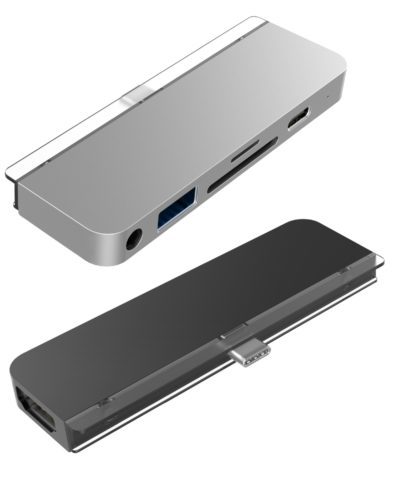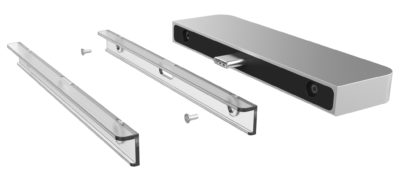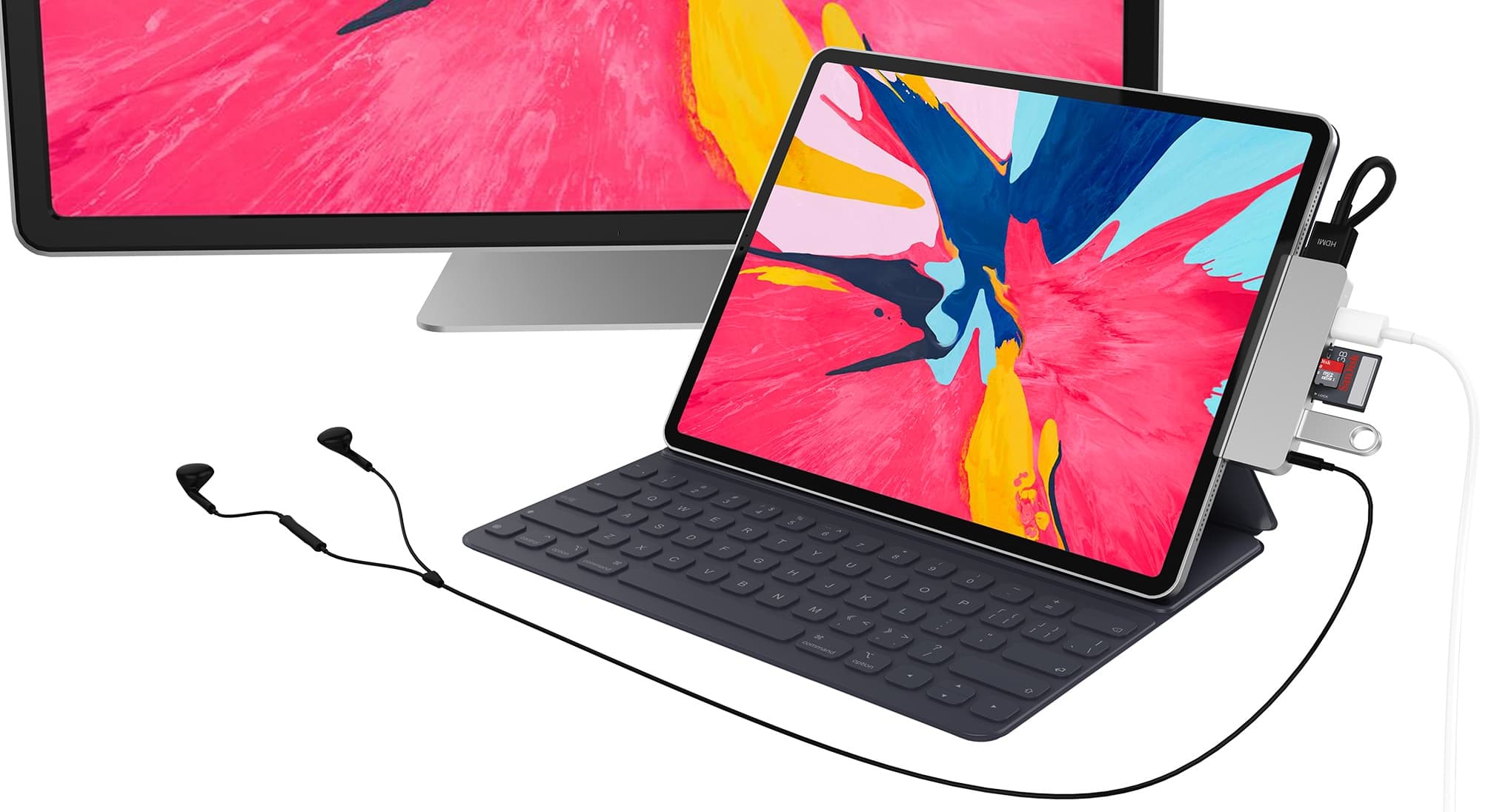Accessory-maker Hyper just unveiled a six-port USB-C hub for the new iPad Pro. The HyperDrive for iPad Pro allows every type of wired accessory supported by the new tablets to be plugged in.
Ports of the HyperDrive iPad Pro USB-C hub are…

Photo: Hyper
The USB-C port is one of several standout features in the 2018 iPad Pro. It’s the first time USB-C has shown up in any iOS device.
The new iPad Pros don’t support every feature of USB-C, but external monitors made the cut. That’s why the HyperDrive includes a 4K HDMI port.
The lack of a headset jack in the 2018 iPad Pro has drawn some criticism, but this hub includes a replacement 3.5mm audio jack.
The HyperDrive’s USB-A 3.0 port can be used to connect to wired keyboards or thumbdrives. There’s also a pair of SD and microSD card readers. But be aware that, at this point, iOS only supports using external storage to import images and video.
Finally — but not least importantly — the HyperDrive for iPad Pro has its own USB-C port so the tablet can charge with all the other accessories connected.
Hyper is touting a C-shaped clamp that “holds the USB-C hub securely in place. Users can safely leave the HyperDrive connected to the iPad Pro to have access to all the ports they need, without worrying about dangling cabled dongles.”
This accessory will be available in silver and space gray to match the iPads.
HyperDrive: First iPad Pro USB-C hub out of the gate

Photo: Hyper
This is the first USB-C hub unveiled specifically for the iPad Pro. Hyper beat its competitors to the punch by announcing the product well before it’s actually available. The HyperDrive release is scheduled for December.
Still, those among the first to buy this version of the HyperDrive can get one at 50 percent off the regular $99.99 price. Sign up on the Hyper website to be notified when the iPad Pro accessory becomes available.
There will certainly be other USB-C hubs designed for the 2018 iPad Pro. Hyper is just the first company to make an announcement. And hubs designed for MacBooks should work as well, though some of their ports might not be supported by the current version of iOS.


